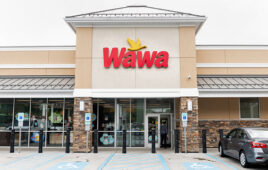 Low bank deposits make c-store owner target of IRS.
Low bank deposits make c-store owner target of IRS.
The Internal Revenue Service (IRS) has dismissed a civil forfeiture case against a Fairmont, N.C. convenience store owner, who found himself unexpectedly facing asset forfeiture under a law intended to target drug dealers and money laundering.
Last July, Lyndon McLellan, who has owned and operated L&M Convenience Mart in Fairmont, N.C., for more than 10 years, was greeted at his store by state and federal officers who informed him they had ceased all the funds in his bank account, which totaled $107,702.66, according to a report in the Washington Post.
McLellan does most business in cash and on the advice of a bank teller made most of his cash deposits in sums of $10,000 or less, because there is less paperwork involved in sums under $10,000.
It is completely legal to make such deposits. Were McLellan making those deposits with the express purpose of avoiding the IRS scrutiny that comes with larger deposits —a practice known as “structuring,” then it would have been illegal. But McLellon and his lawyer maintained this was in no way his intention.
On Wednesday in U.S. District Court in Raleigh, N.C., the IRS agreed to return the money seized from McLellon, the Fay Observer reported. But for McLellon, who spent $3,000 to retain a lawyer and $19,000 to pay for audits, the fight continues.
The Fay Observer noted that in December the IRS changed its policy so that it will no longer enforce structuring laws against people who are not suspected of being involved in criminal activity, but maintain this does not apply to McLellon whose money was seized before that policy went into practice.




